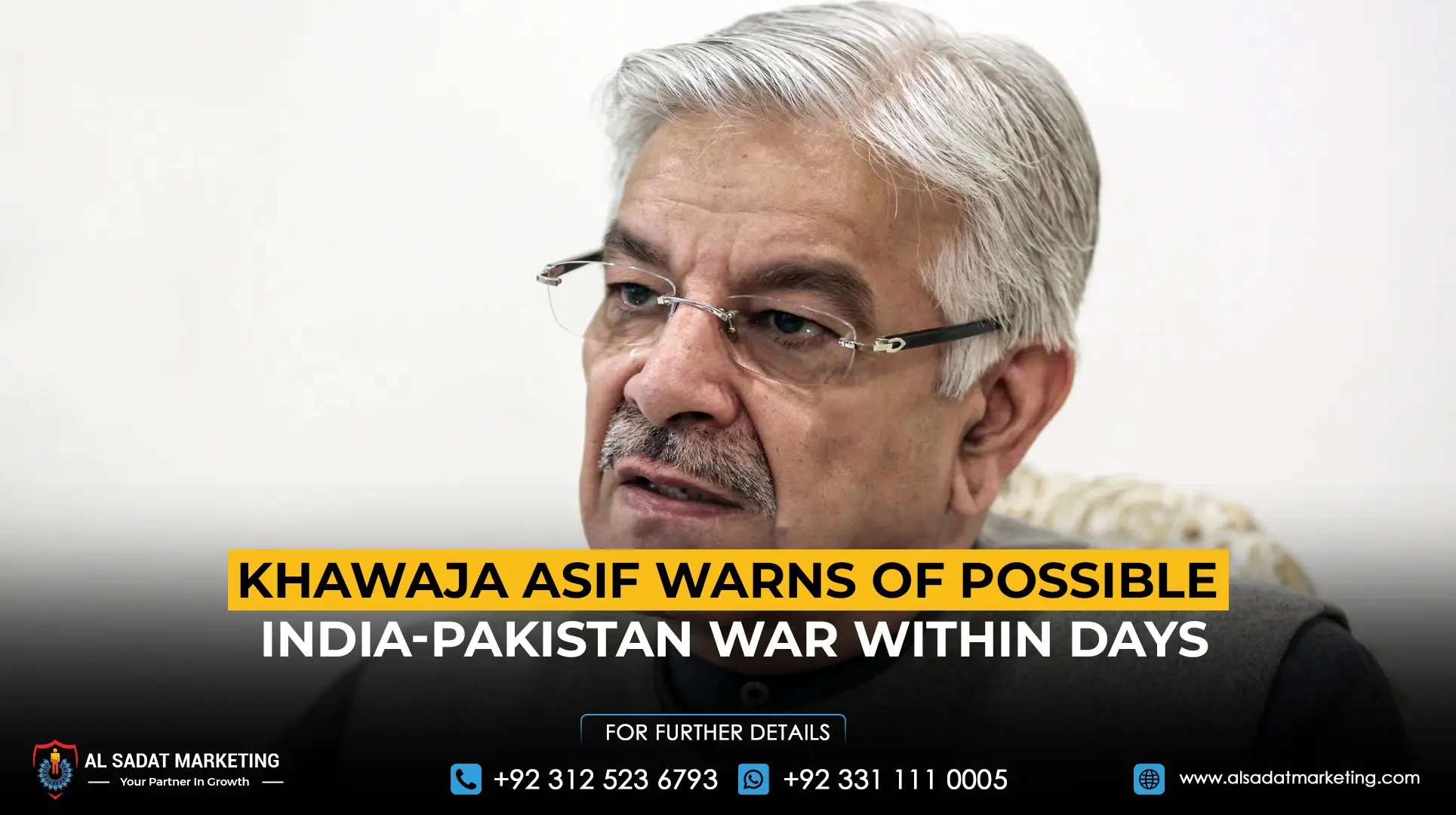Tensions between Pakistan and India are escalating rapidly following a deadly attack on tourists in Pahalgam, a region in Indian-administered Kashmir. Pakistani Defence Minister Khawaja Asif warned of an imminent Indian military incursion, stating that Pakistan had reinforced its forces in anticipation. Speaking to Reuters, Asif emphasized that strategic decisions had been made as war clouds gathered over the region. He highlighted that Pakistan’s military had briefed the government on the possibility of an attack, though he provided no further details.
The attack, which killed 26 people, led to outrage in India and accusations against Pakistan. Islamabad denied involvement and called for a neutral international investigation. On a Samaa TV show, Asif stated that war between the two countries could break out within days, stressing that Pakistan would respond with full force if attacked and would consider using nuclear weapons only if its existence was directly threatened.
Also Read: Real Estate Crowdfunding: A New Way to Invest in 2025
Asif strongly rejected India’s allegations, calling them a fabricated drama aimed at boosting Prime Minister Narendra Modi’s political standing. He pointed to voices within India questioning the government’s narrative and supported the formation of an international commission to investigate the incident.
In response to the attack, India announced the suspension of the Indus Waters Treaty, a landmark agreement brokered by the World Bank in 1960. This move marked a significant escalation in the conflict between the two nuclear-armed neighbours. India also ordered all Pakistani citizens to leave within 48 hours, closed the Attari border crossing, and severely restricted visa services for Pakistanis, including diplomats and defense attachés.
Senior Indian official Vikram Misri stated that the attack was linked to cross-border elements aiming to destabilize the region after elections in Jammu and Kashmir. The Indian government declared several Pakistani diplomats persona non grata and canceled visas.
Pakistan, in turn, suspended all bilateral agreements with India and closed the Wagah border to regular traffic, though it will remain open for Sikh pilgrims until April 30. The Pakistani government also ordered Indian citizens to leave Pakistan within 48 hours and suspended visas issued to Indian nationals under SAARC arrangements.
The National Security Committee of Pakistan, chaired by Prime Minister Shehbaz Sharif, condemned India’s actions and rejected the suspension of the Indus Waters Treaty, terming it an illegal and unilateral move. Pakistan warned that any attempt to block its water share would be considered an act of war and vowed to defend its rights at international forums.
In another significant move, Pakistan announced it could suspend the Simla Accord, a longstanding agreement guiding diplomatic relations between the two countries. The NSC reaffirmed the Two-Nation Theory, emphasizing that India’s aggressive actions highlighted the fundamental need for a separate homeland for Muslims.
The situation remains highly volatile as both nations brace for possible military conflict, and international observers are calling for urgent de-escalation to prevent a catastrophic war between two nuclear-armed states.










